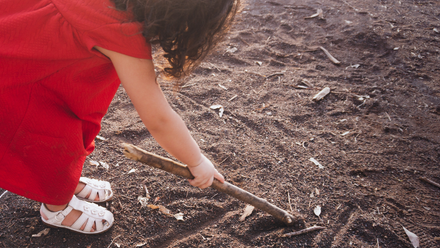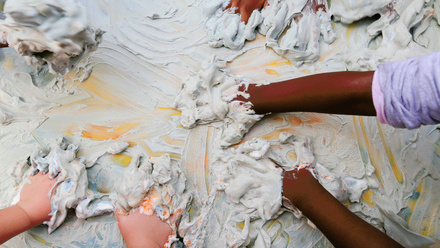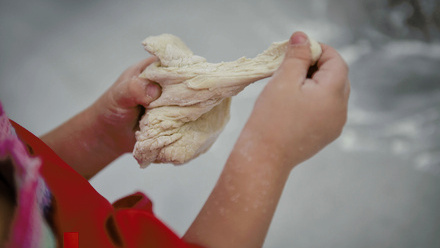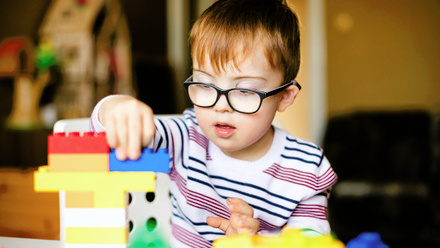Why play matters: Insights into learning theory and its role in early education and care
Playful learning, learning through play, open-ended play, directed play… the ways we think about play within education are endless, as are the opportunities to utilise its approaches for meaningful moments in learning. There are a multitude of ways that play can be considered, from perspectives ranging across historical viewpoints, changing cultures and emerging attitudes towards childhood. Put simply, the role and significance of play as a mechanism for learning is ever-changing, but its importance to the lives of children is continually being recognised as research into play and early education and care grows. In this article, we’re going to look at some of these respected perspectives on play and learning theory, to support our understanding and appreciation for playful learning in the early years of life.
What is a theory when it comes to early education and care?
In his book exploring learning theories in early years practice, Sean MacBlain highlights that “why children learn in the way they do has exercised thinking for generations. We are still not entirely clear how children learn and what activities bring about the best learning outcomes”. The book brings to light the role of learning theorists and philosophers whose work has influenced our practice today. Just as there are views of education itself, there remain a plethora of highly impactful, yet contradicting, theories that contemplate their own views on what good practice truly is. In one respect this offers a horizon of opportunity that acknowledges the unique and individualised nature of early education and care, it is not one size to fit all. But such theories offer tensions in our understanding of high-quality provision when they clash, raising questions about what is best suited to our own contexts, especially when it comes to implementing into policy.
Educational theory discusses how learning environments, pedagogy and child development all relate to our understanding of how children learn and grow. A grasp on educational theory is helpful for professionals working with children for a variety of reasons but, above all, aims to contribute to our understanding of, and shape our thinking about learning, to allow professionals to make informed decisions about their practice. In this light, learning theories are offerings that recognise the role of the environment, curriculum, attitude and adults in supporting children to thrive in their early years and attempt to offer ways to explain these complex ideas in practical ways we can absorb as educators into our daily work.
It’s valuable to keep in mind that, whilst educational theory is influential to practice in varying ways, it is not the only factor influencing the role and circumstances of early education and care professionals. From government changes to a global pandemic, political, social and cultural factors all play their significant part in shaping what we understand of high-quality practice today.
So, what does theory do?
Learning theories aim to offer insight and understanding from a particular perspective, embedded in the cultural and historical context in which it evolved. However, many ‘early’ theories continue to have a resounding influence upon our practices today, informing the curriculums that we craft and the ways in which we come to understand childhood experiences. Learning theories give us a grounding in the thoughts and concepts surrounding early education and care throughout history to reflect on emerging ideas of education and how we engage with similar, or different, practices today. Some of these theories are more prominent in the sector today, such as Maria Montessori’s outlook on the learning environment that shapes an entire style of setting today. Other theories appear to have an indirect influence on our work today but nonetheless remain a significant piece of the jigsaw that builds to the image of early education and care that we see today.
Whilst theorists and philosophers who embarked on this journey to enquire into educational learning and its impact on children may have contradicted each other over time, many of them share a common denominator that surrounds the value of play in the interactions for children’s learning. We know today that play is an essential part of healthy child development – a human right embedded in culture and practice across the world.
For some, play is one of the many languages in which children communicate their needs and interests as well as being a core way that they come to learn about the world, and together with others, their part in it. For others, playful learning is something to be celebrated for the ways in which it gives children a voice of their own in an adult-dominated space and should be encouraged for its purposeful attributes rather than fantastical ones. The ways in which playful learning are grounded in theory, assert it as a purposeful and valuable part of early childhood, engrained not only in the development of skills and knowledge, but also to build foundations on social and emotional levels too.
Wrapping up
There are countless theories that collaborate and diffuse into our own individual understandings of education and quality interaction through the early years. Our own cultural backgrounds and experiences of the world, just like the philosophers and theorists we’ll explore further into this exciting series, shape our opinions and understanding of the world around us.
Play is a fundamental part of developing with all of the opportunities to thrive that every child should be given. It is a foundation for learning, a language of our youth and one that should be harnessed for the sheer power it brings to our sense of self and belonging, regardless of its impact on academic outcomes (which we also know to be huge!). With this in mind, learning theories of past and present are useful mechanisms to reflect on our current understanding of play and why it is so important to take a meaningful approach to the playful opportunities we provide as professionals, interacting in moments to inquire and learn with children.
However, no theory is without its faults so it’s important to remain critical and conscientious when considering how to implement theory into practice, combining traditional stances with emerging research, changing cultural patterns and social policy that impacts us too.






